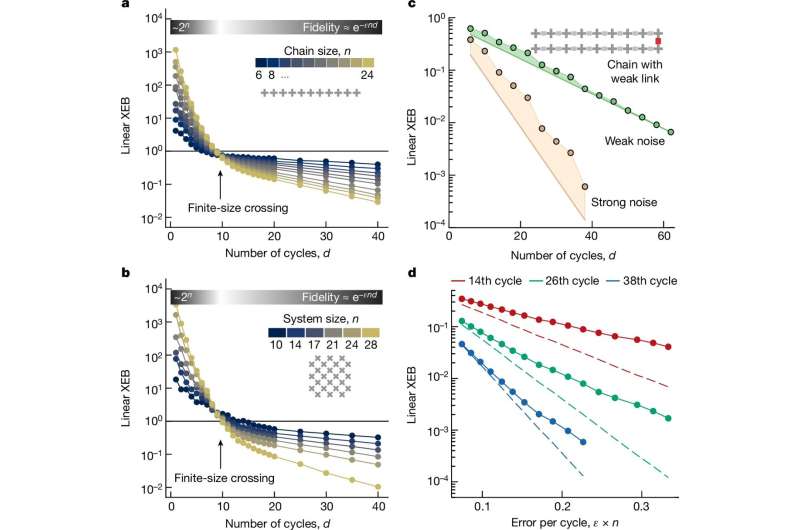Researchers at Google have developed a sycamore quantum chip that can outperform classical computers in a specific task called random circuit sampling. This milestone brings us closer to the realization of a truly useful quantum computer. Quantum computing holds the promise of solving complex problems that would take traditional supercomputers centuries to complete.

Reducing Noise Unlocks Quantum Advantage
The key to Google’s breakthrough was their ability to reduce the amount of noise interference in their sycamore quantum chip. Noise, which can come from environmental factors like temperature changes, magnetic fields, or even space radiation, is one of the biggest challenges facing quantum computing.
By putting their chip in a near-absolute zero chamber, the researchers were able to reduce the error rate from 99.4% to 99.7%. This seemingly small improvement had a dramatic impact on the chip’s capabilities, allowing it to achieve “quantum advantage” when running the random circuit sampling (RCS) algorithm.
Random circuit sampling is essentially a test of a quantum computer’s ability to generate a series of random numbers. While it may sound simple, this task is incredibly difficult for classical computers to perform, making it an ideal benchmark for evaluating quantum supremacy.
Inching Closer to the Quantum Computing Dream
The quest for a truly useful quantum computer has been ongoing for decades, with researchers facing numerous hurdles along the way. One of the biggest challenges has been developing algorithms that can run on both traditional supercomputers and quantum computers, allowing for a direct comparison of their capabilities.
The RCS algorithm used in this study is just one example of such a benchmark. By running the same task on both classical and quantum systems, scientists can measure the performance gap and determine if a quantum advantage has been achieved.
In the case of Google’s sycamore chip, the researchers were able to reduce the noise levels to the point where the quantum processor outperformed classical computers on the RCS task. This is a significant milestone, as it suggests that the dream of a practical quantum computer is closer to reality than ever before.
However, it’s important to note that while this achievement is impressive, we’re still a long way from building a quantum computer that can solve real-world problems faster than classical supercomputers. Continued research and development will be necessary to overcome the remaining challenges and unlock the full potential of quantum computing.
Designed with Google keywords in mind, this section explores the ongoing efforts to realize the promise of quantum computing, highlighting the progress made by the researchers at Google and the significance of their findings.
The Path Towards Quantum Supremacy
The success of Google’s sycamore quantum chip in the random circuit sampling task is a significant step towards achieving quantum supremacy, the point at which a quantum computer can outperform the best classical computers on a specific task.
Quantum supremacy is a crucial milestone in the development of quantum computing, as it would demonstrate the practical advantages of this technology over classical computing. Reaching this goal would pave the way for the creation of quantum computers capable of solving complex problems that are intractable for traditional supercomputers, such as quantum chemistry simulations, cryptography breakthroughs, and quantum machine learning applications.
While the sycamore chip’s performance on the RCS task is a promising sign, there is still much work to be done before quantum supremacy is truly achieved. Researchers must continue to push the boundaries of quantum hardware and software, finding new ways to reduce noise, improve error correction, and scale up the size and complexity of quantum systems. With perseverance and innovation, the dream of a practical quantum computer may one day become a reality, ushering in a new era of computational possibilities.
